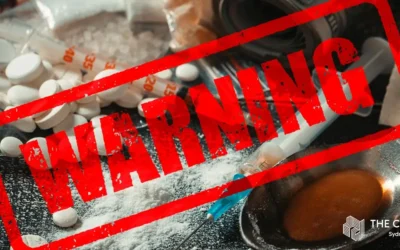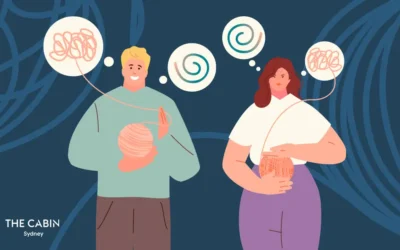Obesity is a major concern for Australians, and most likely linked to the world-wide epidemic of sugar addiction… which is more common than you think.

It is no secret that Australian’s are getting fatter, with the country currently ranked as the fifth fattest nation in the world behind the U.S., Mexico, New Zealand and Hungary respectively. In the past 20 years the percentage of overweight and obese Australians has more than doubled, with 60% of the adult population either overweight or obese. Alarmingly, obesity has now surpassed smoking as the leading cause of premature death and illness in Australia. People are dying and the nation is searching for answers.
For decades, the focus of blame has been on fatty foods and saturated fat, but new research suggests that addiction to sugar could be what is fuelling Australia’s obesity epidemic. Food and sugar addiction have received a lot of media attention lately, and while certainly not all obesity can be attributed to sugar addiction, it is playing a key role in the mental and physical health of Australians.
The Science behind Sugar Addiction
The science behind sugar addiction has been developing rapidly, with some even going so far to say that sugar is as addictive as cocaine. Lab rats seek sugar with the same intensity as drugs such as morphine and cocaine, and their brains are stimulated in the same way as when ingesting the addictive drugs.
Most recently, scientists believe they have found a pathway in the brain that triggers compulsive sugar seeking. In the study, researchers activated this brain circuit in one group of rats, and left a second group inactivated. They then set up a trap in which the mice would have their feet electrocuted if they attempted to get to the sugar on the other side of their cage. They observed that the rats who had this specific sugar addiction pathway activated were so obsessive about getting the sugar that they endured electrocuting themselves in the process, while the control group avoided the electrocution (and the sugar).
This gives us an insight to how the brain can become addicted and wired to crave sugar incessantly. After repeated activation of this neural pathway, sugar seeking behaviour becomes compulsive. The study, all too realistically, parallels many people’s experience with food and sugar — they will endure physical and emotional pain over and over again to continue eating, despite wanting to stop.
A Closer Look at Food Addiction
No one wants to suffer from alcoholism and drug abuse. Nor do they want to become addicted to food. While you may think that becoming addicted to food is less serious than drug or alcohol addiction (or even impossible), this process addiction is very real and causes significant harm in people’s lives emotionally, physically, and socially.
The confusion for some lies in the differences of food addiction vs. sugar addiction. Put basically, sugar addiction is one of the main culprits of the overall term ‘food addiction’ which combines salt and fat together with sugar to create food that is very addictive for the human body. But while research is growing to indicate that sugar is in fact an addictive substance similar to cocaine, addiction to food is currently referred to as a behavioural, or ‘process’ addiction due to the type of treatment it requires.
We are naturally hardwired to experience pleasure from eating, and can become addicted to the feelings we get from this process. Certain foods, specifically those high in fat, sugar and salt send even stronger signals to the brain’s reward centre. Over time, people can become reliant on food and eating to provide any sort of activation in the reward centre of the brain, and their consumption of certain addictive foods becomes compulsive and out of control.
How Do You Know if You Have a Food Addiction?
Sugar and food addiction manifests similarly to drug addiction. This means that there are signs and symptoms that signal an addiction is present, such as intense cravings, tolerance (needing to consume more to feel the same effects), withdrawal (feeling moody and anxious when certain foods are not available), and a desire yet inability to change your behaviour.
If you feel as though your habits surrounding food are out of control, no matter what you try, you may be suffering from addiction. Negative effects include health problems associated with obesity, such as heart disease, diabetes, and cancer. People suffering from any addiction, including food and sugar addiction, experience a high level of shame, guilt and low self-esteem. For those addicted to food, this could be compounded by society’s tendency towards ‘fat shaming’. Depression and anxiety also often co-occur with addiction and together the conditions can be extremely debilitating.
If you have suffered drug or alcohol addiction, than your risk for developing an eating addiction is high. Beware of using food in the same way that you once used alcohol or drugs — to relieve stress, or for ‘something to do’.
There is Hope for Recovery
Australian MasterChef and media personality Sarah Wilson has recently released and sold over 200,000 copies of her eBook I Quit Sugar. She is frank to speak of her own sugar addiction and how she overcame it and is inspiring many Australians to take steps towards abstinence from sugar.
But it is not easy. Sugar is elusive. A major part of Australia’s sugar addiction problem is that Australians eat upwards of 20 teaspoons of sugar a day without realising it. Once you start looking at food labels you will find added sugar hiding in almost every product on the shelf.
While some may be able to follow self-help books like Sarah Wilson’s, which describes exactly how she learned to change her lifestyle and kick her addiction, it usually requires more structured addiction treatment.
Food Addiction Treatment
The main difference between treating food addiction and treating drug and alcohol addiction, is that we cannot abstain from food. While cutting drugs and alcohol out of our lives completely is not only possible but incredibly healthy, we cannot cut food out of our diets completely. We can, however, abstain from high-fat, high-sugar, and processed food. But for those who are completely submerged in sugar and food addiction, it is a lot more difficult than it sounds. For many, underlying issues are causing the overeating, and getting professional help to change your lifestyle and adopt this complete abstinence is often the only way to completely free yourself from sugar addiction.
Addiction treatment centre, The Cabin Sydney, offers integrative treatment for substance and behavioural addictions. The innovative Recovery Zones approach is especially useful in understanding and battling an addiction to food. If you are struggling with overeating and concerned your behaviour with sugar and food has entered the realm of addiction, do not hesitate to contact us today for a consultation.


